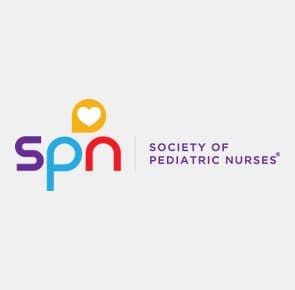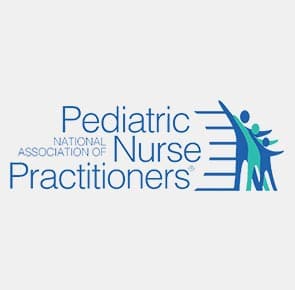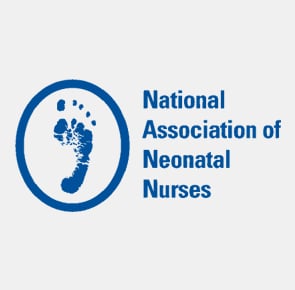What Does Being a Pediatric Nurse Entail?
Pediatric nursing specializes in caring for infants, children, and adolescents. Pediatric nurses are registered nurses (RNs) with at least an associate's degree and RN licensure. Additional certifications can enhance their expertise and credentials.
Pursuing pediatric nursing involves caring for babies and children, often supporting parents as well. Roles may include charge nurse, caregiver, consultant, or administrator. Careers as certified pediatric nurse practitioners offer diverse paths based on your interests.
To pursue pediatric nursing, start with at least a bachelor's degree in nursing or an associate degree leading to RN licensure. You can then earn pediatric nursing certification or advance to specialties like pediatric oncology, cardiology, or intensive care, which may require a master’s degree or experience. Certified pediatric nurses can work in children’s hospitals, medical centers, or private practices.

Components of A Successful Career in Pediatric Nursing
A successful pediatric nursing career starts with education. Choose a fully accredited nursing school that fits your needs, whether online, in-person, or hybrid. Online students must still complete clinical practicums locally.
You can become a pediatric nurse with an associate degree in nursing (ADN) and RN licensure, working in pediatric offices or hospital units like neonatal or pediatric intensive care. After gaining experience, RNs can earn pediatric nursing certification to provide advanced care.
With certification as a pediatric nurse, you can advance your credentials through a master’s degree to become a pediatric nurse practitioner in primary or acute care, with certifications available for both.
Featured Online Programs
How to Earn a Pediatric Nursing Degree Online
Program Requirements
Through your ADN and BSN degrees, you will primarily study general nursing coursework. However, your program might allow you to choose specific areas for your clinical work. Nurses must work in a number of environments during their clinicals, however, if there's a way to do extra rotations in neonatal units or at children's hospitals or a children's medical center, you can highlight this on your resume.
Certifications Needed
 After gaining experience in pediatrics, you can earn certification through the Pediatric Nursing Certification Board to become a Certified Pediatric Nurse. For those with graduate degrees, certifications are also available for pediatric nurse practitioners in primary or acute care.
After gaining experience in pediatrics, you can earn certification through the Pediatric Nursing Certification Board to become a Certified Pediatric Nurse. For those with graduate degrees, certifications are also available for pediatric nurse practitioners in primary or acute care.
You can also pursue certificates and certifications from The American Midwifery Certification Board, the American Nurses Credentialing Center, and the National Certification Corporation. Each of these organizations offer new credentials that can help you craft your career to reflect your specific interests and strengths after you've passed the NCLEX-RN exam.
Find Your Online Mental Pediatric Nursing Program
Academic Standards
Nursing school is competitive and demanding. Furthermore, rapid growth in the healthcare industry has resulted in high demand for nursing schools, so you must be prepared to study hard whether you attend a traditional or online program. Though some programs only require a 2.0 GPA to remain in good standing, you should strive for a 3.0 or better.
Exam/Experience Needed
To gain admittance to a nursing degree program, you might prepare yourself by first working as an LPN or CNA, which will both impress admissions counselors and reinforce your desire to work in the field. There is no specific test for entering nursing school, but you will need to pass an exam in order to become licensed as an RN. Once you qualify as an RN, you can begin working in pediatrics.
Online Pediatric Nursing Degree Options
To start a career in pediatric nursing, you will need to attain at least one degree and an RN license. With an online or on-campus associate degree in nursing (ADN) you can sit for the nursing exam and receive your state issued license. However, more and more employers are expecting that their nurses have a Bachelor of Science in Nursing (BSN).
If you want to specialize in pediatric nursing, you should consider starting your career with a BSN degree, as that will help you compete against other nurses with similar experience. Then, when you have a BSN, you will have an easier time attaining specialties within pediatrics. You can also apply to a Master of Science in Nursing with a focus on pediatrics and that can springboard you into becoming a nurse practitioner.
Naturally, as you progress in your educational credentials, your responsibilities and salary will likewise increase. While you might be able to receive promotions and pay raises without additional degrees, a degree is often the fastest route to advancement. Furthermore, you can only add specialties and advance your skill sets with more school work.
Online Associate Degree
A two-year nursing degree, an ADN, is the fastest way to qualify to become a registered nurse. At this level, you will only be able to provide bedside care, but you can still have a fruitful nursing career.
Example Courses:
- Human Anatomy & Physiology
- Microbiology for Health Professionals
- Principles of Pharmacology
Online Bachelor’s Degree
Once you receive your online Bachelor of Science in Nursing, whether online or on-campus, your career will be ready to take off. Hospitals and doctors are increasingly expecting that their registered nurses will have BSN degrees. You can also springboard from your BSN into a wide array of specialty areas or apply for a master's program that will enable you to work as a pediatric nurse practitioner.
Example Courses:
- Statistics for Healthcare Professionals
- Precalculus (and higher)
- Information Management and Patient Care Technology
- Pathophysiology
- Ethics in Healthcare
Online Master’s Degree
At the master's level, you can pursue more intensive specialty areas and you can also become a pediatric nurse practitioner. That means that you might be able to manage your own clinic and take on responsibilities that are close to that of a medical doctor. Though you can still pursue a doctoral degree, many find that their MSN provides ample pay and opportunities to advance themselves as nurses.
Example Courses:
- Human Experience of Health and Illness
- Epidemiology and Population-Based Nursing
- Theoretical and Clinical Aspects of Nursing
- Health Assessment for the RN
- Clinical Practicum
- Fundamentals of Clinical Practice
Example Specialties:
- Pediatric Nurse Practitioner – Acute Care
- Pediatric Nurse Practitioner – Primary Care
- Nursing Informatics
- Psychiatric Nurse Practitioner
- Emergency Nurse Practitioner
Online Doctoral Degree
The pinnacle of nursing education is found at the doctoral level. There are two primary degrees for nurses to pursue: Doctor of Nursing Practice or the Ph.D. in Nursing. You will want to pursue a DNP if you intend to continue practicing nursing at the clinical level. The Ph.D. will position your career towards academic research and possibly post-secondary teaching. To illustrate this, many Ph.D. programs require that you undergo mentored teaching hours, while teaching is not a requirement for DNP students.
Example Courses:
- Evidence-based Nursing
- Transforming the Nation's Health
- Data-Driven Healthcare
- Quantitative Methods
- Effective Leadership
Careers and Salaries for Pediatric Nurses
You can start a pediatric nursing career with an online or traditional associate degree in nursing. This two-year degree allows you to become a licensed RN, though your duties may be limited. While raises and promotions are possible, higher-paying specialties and advanced roles typically require further education. Online degrees still require local clinical work.
When you complete your BSN, you not only will see a pay increase, but you will have the background necessary to delve into deeper focus areas. If you're working in pediatrics, you might choose pediatric cardiology, oncology, or neurology. If your desired specialty requires a master's degree, you will be in a position to apply to graduate school.
With an online master's degree, your pediatric practice can deepen even further. You can then work as a pediatric nurse practitioner in either acute or primary care, depending on which route you choose for your degree. Nurse practitioners command a healthy salary and are able to prescribe many medications, diagnose illness, and perform many of the same duties as a medical doctor.
Find Online Mental Pediatric Nursing Schools
Salaries by Occupation
Nursing Occupations:
-
Registered Nurse: This general profession provides patient care at a variety of levels. You might provide basic bedside care in which you administer medications, record data from diagnostic equipment, or change IV fluids. Other RNs might have specialties that enable them to work in surgery or in medical specialties such as neurology or cardiology.
-
Pediatric Nurse Practitioner – Acute Care: Once you graduate with an MSN you can work as a pediatric nurse practitioner in acute care. This means that you will spend your days working in an Emergency Room or perhaps a neighborhood clinic where you will attend to injured children. Consult your state's rules for the specific regulations on this occupation.
-
Pediatric Nurse Practitioner – Primary Care: You will need an MSN specializing in pediatrics if you wish to be a pediatric nurse practitioner. In primary care you can attend to patients in much the same way a primary care physician does. That is, your credentials will enable you to diagnose and provide a range of treatments to your patients. Consult your state's rules for the specific regulations on this occupation.
-
Healthcare Administrator: After you have worked as a nurse for a while, you might find yourself taking on more administrative duties. If you have a BSN, you might move into healthcare administration. You could even return to school for an MBA in Healthcare Administration or a Master’s of Healthcare Administration.
-
Physician Assistant: This occupation is related to that of nurse practitioner, however PAs work alongside physicians on a treatment team. You can work in hospitals, clinics, or any other healthcare environment. Your work will involve examinations, diagnoses, and treatments.
-
EMTs and Paramedics: These healthcare workers are on the true front lines of healthcare. They respond to patient emergencies in homes, on the road, and even in the wilderness.
Important Questions to Ask (FAQ)
How long does it take to earn this degree?
Becoming a pediatric nurse can take as little as two years if you study online. Once you are admitted to a program, you’ll need to make sure it is your priority. Take classes full-time and don't take breaks. However, if you do need a term off for any reason, make sure you return immediately to your full-time school schedule.
How much does this degree cost?
If you pursue an online Bachelor of Science in Nursing (BSN) you could pay as much as $300,000 for a top-tier program in an expensive city. On the other hand, your local state university may be able to see you through to graduation for as little as $30,000 in tuition.
You can always strive to contain costs by remaining with an in-state, public university, or finding an online university that doesn't charge a premium based on your residency status. You can also start your education by attaining an ADN at a community college, which is usually a budget-friendly option.
Does the school have the major you’re considering?
All the way through to your undergraduate graduation, you will take a standard nursing curriculum. Thus, you should at least find a school that offers a nursing program. If you already have a passion for pediatrics, you could investigate the program's offerings regarding pediatric nursing. You might be able to focus on your specialty via elective courses, or find internships with pediatric doctors, for instance.
When you reach your graduate program, you can focus on pediatrics. Make sure your MSN program offers the appropriate concentration.
How many students graduate “on time”?
These days it is more and more rare to find a student in a four-year degree program who graduates in four years. Even government studies forgo the four-year measure and look for students to graduate in six years.
The statistics show that students who attend highly competitive programs are more likely to graduate on time, or at least within six years. It's also been shown that women have a better chance of graduating on-time. If you have a passion for nursing and remain focused and determined, you should be able to graduate in a timely manner.
Search Programs Offering Mental Pediatric Nursing Majors
What kind of accreditation should the program have? How is it regarded in the field?
Your program should be accredited by either The Accreditation Commission for Education in Nursing (ACEN) or The Commission on Collegiate Nursing Education (CCNE). This applies whether you are registering for courses in a two-year community college or a graduate program. That's because future employers will need to know that your education is top tier and verified by independent, respected agencies.
Software, Technology and Skills Needed
To be a pediatric nurse, you will need to have many skills, some of which you will have to develop independently.
These are the sorts of things you cannot necessarily be taught:
- Love of Children:
This is imperative for pediatric healthcare professionals. If you don't have a deep love for kids, the kids are bound to sense this. You need to instill confidence and trust in your patients, so be certain of your true feelings and motivations before pursuing pediatric nursing. - Patience:
Children are often unaware of the gravity of their healthcare situation and thus are prone to being unruly or defiant. Babies are thoroughly incapable of ascertaining their situation and likewise are difficult at times. You will thus need to have patience for these patients so that you might gain their trust, attention, and respect. - Observation:
Since kids often have a hard time articulating their condition, you will often need to assess them by means of observation alone. This is especially true for those who work in the neonatal unit - Communication:
To be successful as a Pediatric Nurse, you need to be able understand children and then communicate your needs to them in a way that they understand. You will also need to communicate with doctors on their level. You will be a defacto translator between children and highly educated doctors.
Scholarships
-
American School Health Association Scholarship
Amount: $250 (1 undergraduate & 1 graduate for conference registration)
Deadline: May 15This award is primarily focused on those who wish to pursue employment in schools as health educators, school nurses, school counselors, or a school social worker.
-
March of Dimes – Graduate Nursing Scholarships
Amount: $4,000
Deadline: Varies (Previously January 19)In order to promote the health and well-being of newborns and their mothers, the March of Dimes awards graduate students of nursing scholarships to assist with their training. You may be awarded up to $4,000 if you are an RN currently enrolled in a graduate program that is focused on maternal-child nursing. You should also be a member of a professional organization and have at least one term remaining prior to graduation.
-
Association of California Nurse Leaders – Nurses Float Scholarship
Amount: Varies
Deadline: Varies (Fall)This scholarship fund receives monies that are left over from the association's annual Rose Parade Float budget. The award can go to any RN currently pursuing a nursing degree. You can be working towards an ADN, BSN, or MSN degree. Note that you need not be an ACNL member nor a California resident to apply and win an award.
Professional Organizations
- SPN
- NAPN
- NANN
- AWHONN

SPN
Society of Pediatric Nurses
The SPN is an organization that provides a vast array of resources to Pediatric Nurses. Their ranks boast 3500 members across 28 different specialty areas. As a member, you'll have access to educational resources, pediatric news, and national networking opportunities.

NAPN
National Association of Pediatric Nurse Practitioners
This organization is specifically for those who have achieved an MSN and who are practicing Nurse Practitioners. The association provides continuing education resources, a free pediatric healthcare magazine, 50 chapters nationwide, and even patient education materials, among many other benefits. On top of that, you can network with at least 9,000 other NPs.

NANN
National Association of Neonatal Nurses
If you specialize in neonatal patients, this association can provide a bounty of resources and networking possibilities. As a member, you can participate in online discussions, receive free educational materials, and attend the association's annual meeting. The organization will also be helpful when you need continuing education materials and other resources for your professional development.

AWHONN
Association of Women's Health, Obstetric and Neonatal Nurses
AWHONN is packed with resources that will inform and propel your career to the next level. There are educational materials to deepen your knowledge, resources to deepen your practice, and even courses that will help you achieve new certifications. On top of this, their national convention will enable you to meet and connect with colleagues from across the nation.
Choosing an Accredited College
It is vital to attend an accredited college for your nursing degrees. Look for a program that is endorsed by either ACEN or CCNE. If your program is not accredited you might not be fully prepared for your licensing examination, and you may have a difficult time when you apply for higher education, such as an MSN.
Online vs On-Campus vs Hybrid
As an RN, you can choose from online, on-campus, or hybrid programs for further education. Online programs offer outcomes comparable to on-campus degrees, providing flexibility to fit your schedule. You'll have equal participation in discussions and easy access to instructors via email.
On-campus classes offer a more rigid structure that doesn’t allow for schedule deviations, but which allows you to meet your fellow students and instructors in real life. For many, this is a huge advantage. Make sure, however, that your work schedule will not interfere with your education.
Hybrid programs are relatively new to the scene. These deliver most of your instructional materials online yet require attendance on campus from time to time. Some programs require attendance once per semester, while others meet monthly. Prior to enrolling, make sure that you can be present for all on-campus meetings.
Frequently Asked Questions
Does the College Have Post Graduate Job Placement Help & Assistance?
When you attend nursing school, your primary goal is to actually work as a nurse. Therefore, it’s especially helpful if your program has job placement resources available for you. You can check for this when you speak to an admissions counselor. You’ll also want to discuss items such as clinical rounds, which may be closely related to later job placement, and about alumni successes and what resources will be available to you in the years following your graduation.
Why You Need to Consider How Ratings/Accreditation Can Affect Your Salary
Your program's ratings and accreditation can directly impact both your job prospects and your salary. This is because your future employer will want to confirm that your education was top notch and that they won't need to follow up with additional on-the-job training. This is why you need to pursue the top-rated programs and those with ACEN or CCNE accreditation. Keep in mind that you can still complete a nursing degree online and land your dream job.
Search All Programs
